13 Reasons Why's controversial season two
- Published
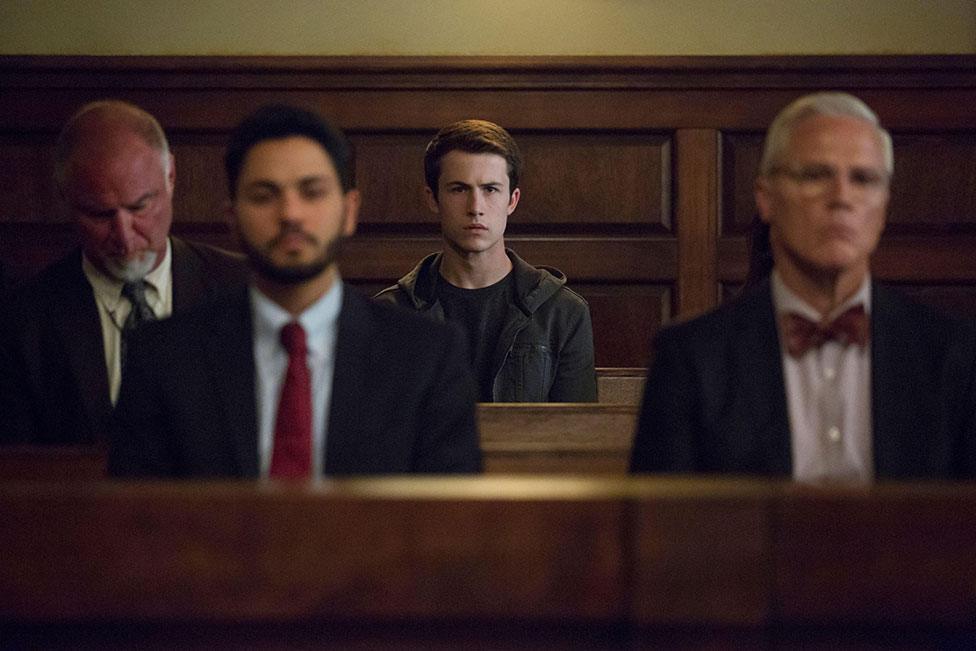
If the creators of 13 Reasons Why were hoping the show's second season would be less controversial than the first, it's fair to say that a week since its release they'll be very disappointed.
Warning: This article contains graphic sexual details and spoilers.
The show has been criticised mainly for a graphic rape scene in the show's final episode, although that's not the only reason the Parents Television Council in the USA has urged Netflix to cancel it.
Season two also covers school shootings, addiction and sexual assault, as well as rape culture more generally - and is all underlined by themes of depression and mental illness.
The consensus from critics is that it led to an "unnecessary", "pointless", "cumbersome", "baggy", "badly written", "ponderous" and "boring" bit of TV.
But not everyone agrees.
Chloe Miller, an 18-year-old from Bedford, thinks the show is representing real life. She says it gives her a sense of "belonging", and presents issues she's struggled with accurately.
"It's what goes on. It doesn't bother me at all. I think it's actually something that people need to see - otherwise it's almost like we're denying reality," she says.
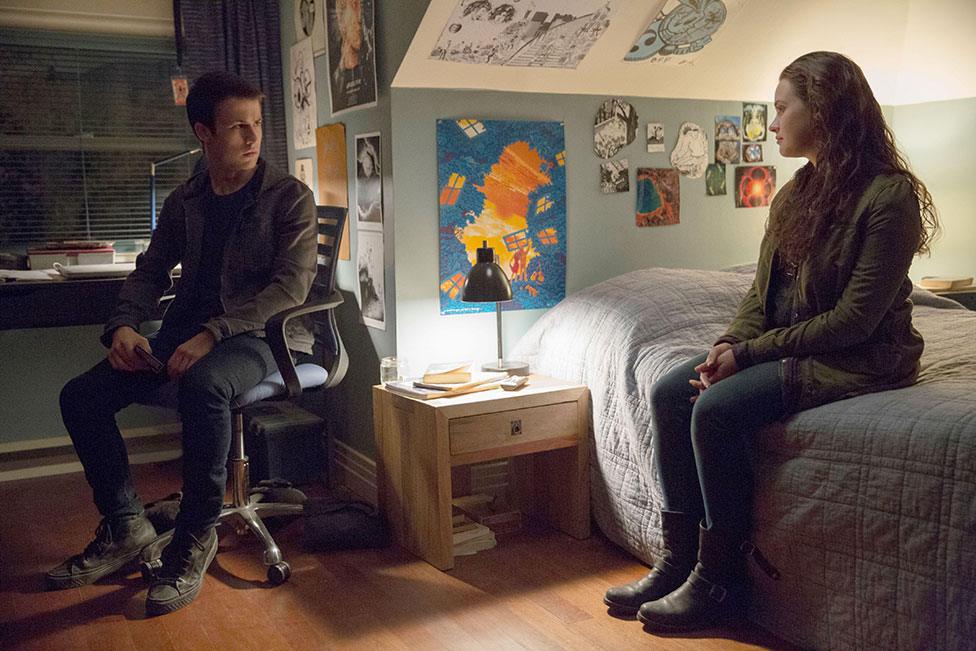
Clay is haunted by Hannah's presence in season two
But isn't it dangerous to present such serious and violent issues to a young audience, as critics have argued?
"I've been through high school, which was the worst, and I'm at college now and I'm gonna be honest - that is what it feels like. And that's why it's my favourite show," Chloe says.
The college student says that the show is representing how teenagers feel now, not how they might feel in the future.
"You're not thinking: 'Oh, eventually it's gonna be all bright and sunny' - everything's like hell."
The reaction in the media, and a large part of social media, suggests Chloe's view is in the minority.
Many have said that the scene in the final episode, which sees Tyler sodomised with a broom in the male locker room, was done purely for shock value.
Allow X content?
This article contains content provided by X. We ask for your permission before anything is loaded, as they may be using cookies and other technologies. You may want to read X’s cookie policy, external and privacy policy, external before accepting. To view this content choose ‘accept and continue’.

Allow X content?
This article contains content provided by X. We ask for your permission before anything is loaded, as they may be using cookies and other technologies. You may want to read X’s cookie policy, external and privacy policy, external before accepting. To view this content choose ‘accept and continue’.

Allow X content?
This article contains content provided by X. We ask for your permission before anything is loaded, as they may be using cookies and other technologies. You may want to read X’s cookie policy, external and privacy policy, external before accepting. To view this content choose ‘accept and continue’.

Others think that a rape scene should, by definition, be "uncomfortable" for the viewer.
Allow X content?
This article contains content provided by X. We ask for your permission before anything is loaded, as they may be using cookies and other technologies. You may want to read X’s cookie policy, external and privacy policy, external before accepting. To view this content choose ‘accept and continue’.

Allow X content?
This article contains content provided by X. We ask for your permission before anything is loaded, as they may be using cookies and other technologies. You may want to read X’s cookie policy, external and privacy policy, external before accepting. To view this content choose ‘accept and continue’.

Selena Gomez, who executive produces 13 Reasons, says the show exists to be a "catalyst for conversation".
And Dalia Al-Dujailri, an English literature student who enjoyed both seasons of the show, thinks it's done a good job of raising issues.
A big part of season two deals with rape culture - the normalisation of things like sexual assault and abuse - and what boys in school can do about it.
Allow X content?
This article contains content provided by X. We ask for your permission before anything is loaded, as they may be using cookies and other technologies. You may want to read X’s cookie policy, external and privacy policy, external before accepting. To view this content choose ‘accept and continue’.

"They showed all the intricacies and subtleties of that kind of 'lad' culture in schools," Dalia says.
But she does think the scene with Tyler could have been done differently.
"I know kids as young as 12, 13, 14 watching that kind of stuff. And to have kids that young watching such a brutal and explicit rape scene... I think they could've done it a little bit better.
"At the same time I think bringing up the issue for young boys is very important. But it was a bit harrowing, and a bit uncomfortable, and I think if I was a younger person watching that I would be quite disturbed by it."
Allow Instagram content?
This article contains content provided by Instagram. We ask for your permission before anything is loaded, as they may be using cookies and other technologies. You may want to read Meta’s Instagram cookie policy, external and privacy policy, external before accepting. To view this content choose ‘accept and continue’.

The show's creator Brian Yorkey had a slightly different justification for the scene that got so many people upset.
He said the scene was intended to create empathy for Tyler, a character he says can easily be dismissed as a "loner" and "peeping Tom".
"As brutal as that scene is to watch, I defy anybody to watch it and not feel pain for Tyler," he said on discussion series Beyond The Reason.
He says they chose to cover the issue because their research showed male rape in locker rooms, with things like broom handles and pool cues, to be "almost at epidemic levels".
"Not portraying it doesn't mean it goes away... it just means we're not talking about it," he said.
'It's not a student's responsibility to deal with this'
After his rape, Tyler heads to Liberty High School with a cache of guns - something that has been building since the final episode of the first season - with the intention of committing mass murder at the school dance.
Unsurprisingly, this served as another point of controversy.
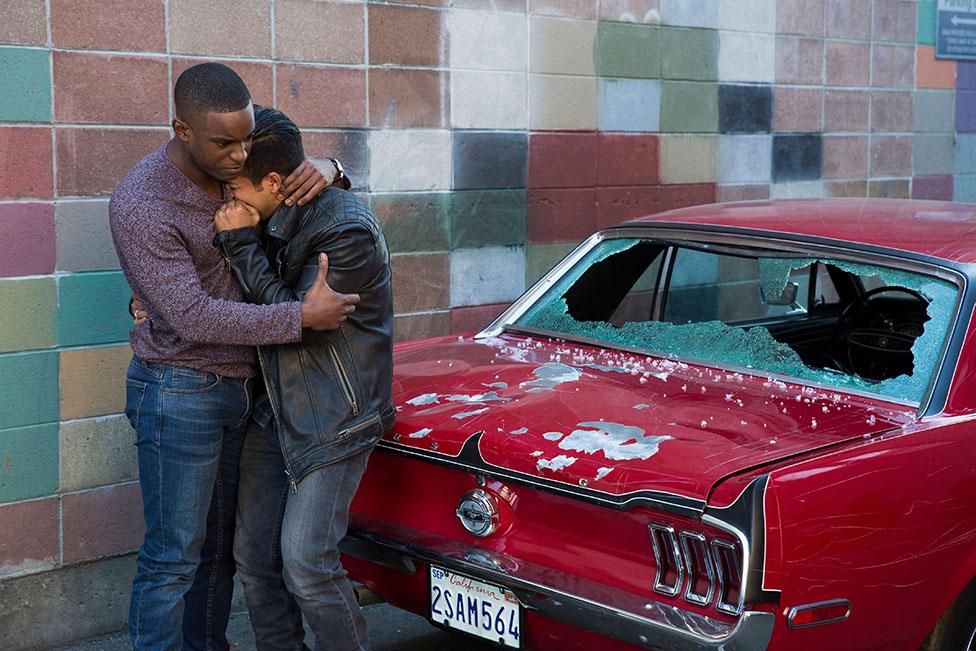
The series has many interweaving storylines
Dakota Jablon, a policy analyst at the Coalition To Stop Gun Violence, says there were many problematic parts to the storyline.
"The student Clay not doing anything and not calling the cops or not calling an adult into that situation, is one of the most problematic things."
Dakota says the advice to students is to never confront an active shooter, and always get a qualified adult involved - ring the emergency services.
"Students are watching this and they potentially could think: 'If I see someone that I think could become a school shooter, I just need to handle it myself'."
Overall, she thinks the show's creators wanted to "sensationalise" the school shooting storyline for "entertainment purposes".
"These are really serious subjects and you need to be very aware for your audience not to sensationalise it," she says.
"You don't want to create copycat behaviour."
If you need any support with any of the issues raised in this article, visit the BBC Advice pages.
Follow Newsbeat on Instagram, external, Facebook, external and Twitter, external.
Listen to Newsbeat live at 12:45 and 17:45 every weekday on BBC Radio 1 and 1Xtra - if you miss us you can listen back here.
- Published18 May 2018
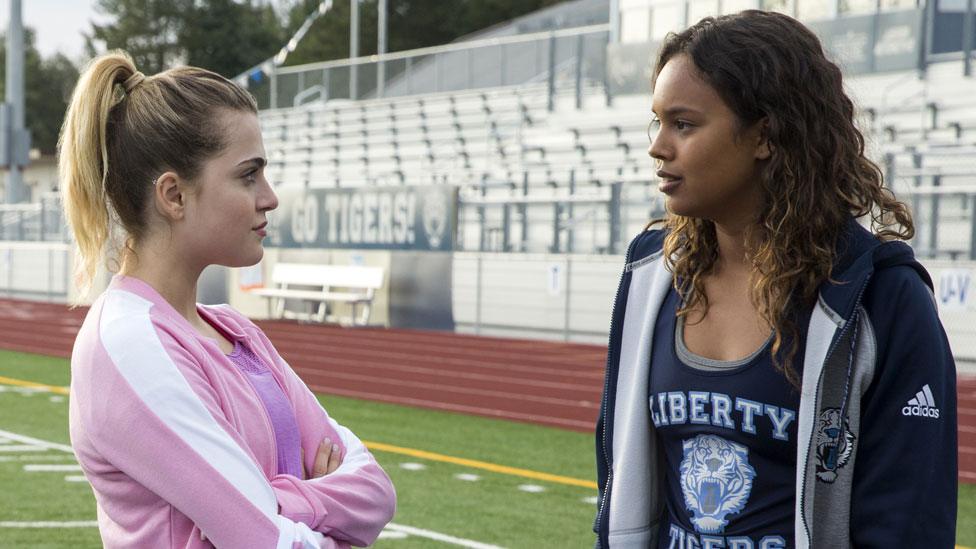
- Published23 March 2018
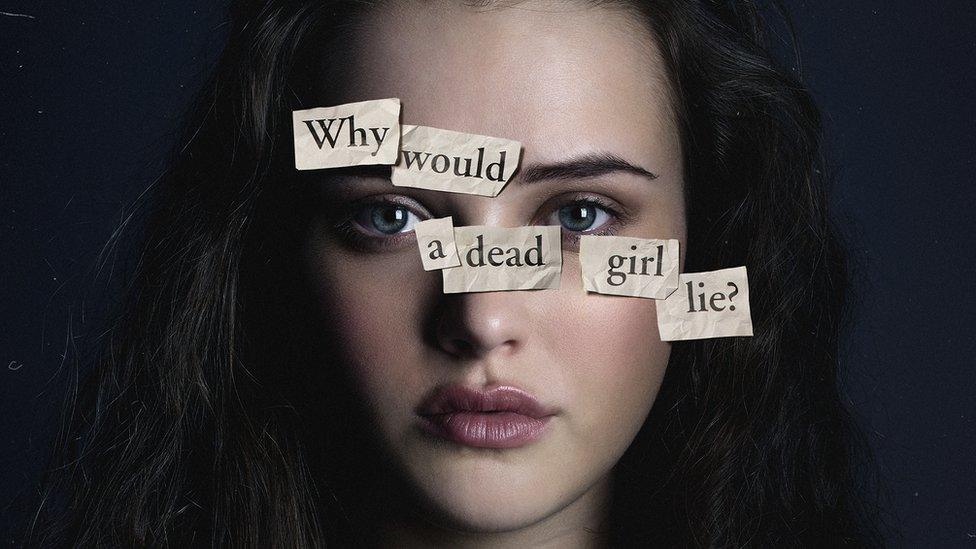
- Published18 April 2017
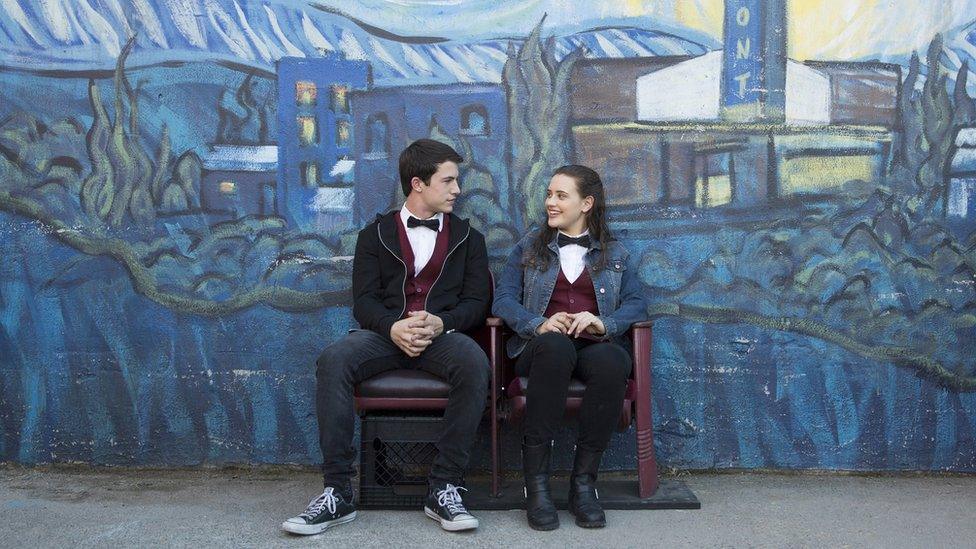
- Published2 May 2017
